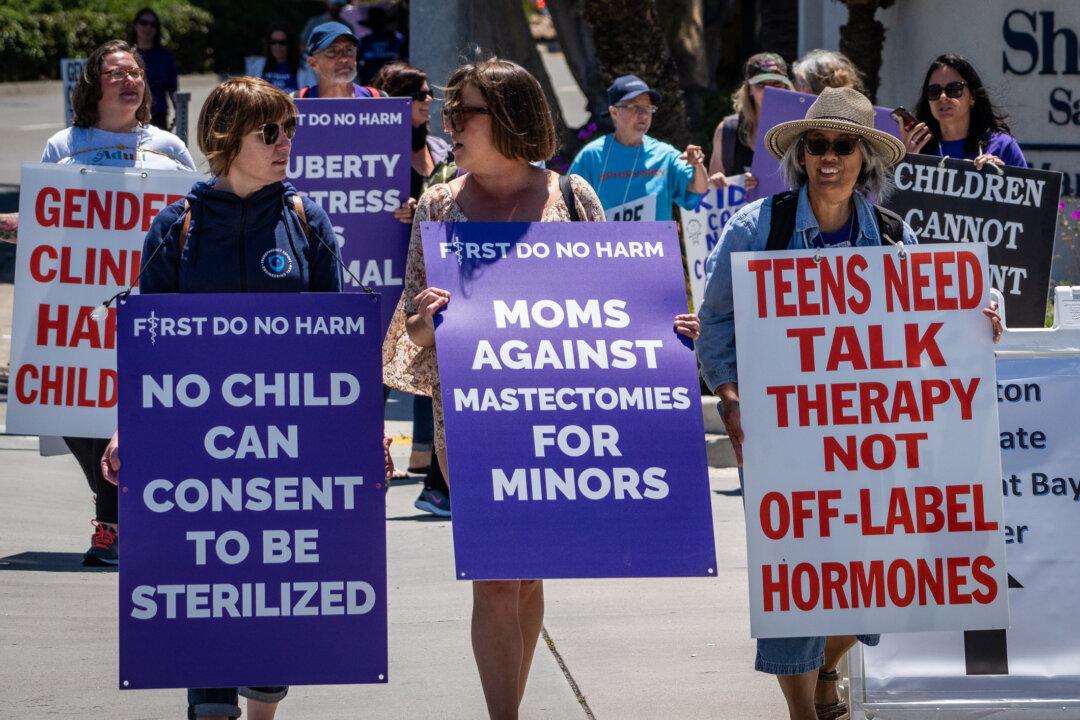SAN DIEGO—A crowd of more than 50 people protested outside the annual conference of the Pediatric Endocrine Society this weekend over the organization’s “gender-affirming” policies and use of puberty blockers and cross-sex hormones on children.
The demonstrators marched peacefully on the sidewalks bordering the Sheraton Hotel & Marina in San Diego, carrying signs and shouting “biology not ideology,” “puberty blockers don’t stop suicide” and “kids cannot consent to puberty blockers,” among other chants.





